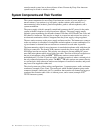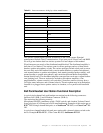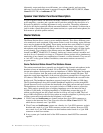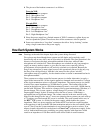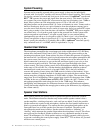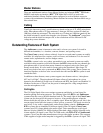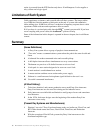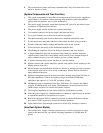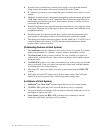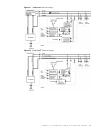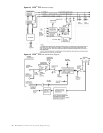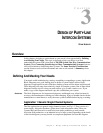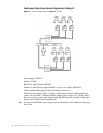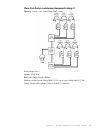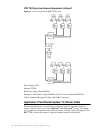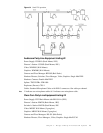18 Handbook of Intercom Systems Engineering
2 Systems can be powered from a central power supply or local powered modules.
Using local power modules allows more stations to be on the system.
3 If a station is too far away to get enough DC power, batteries can be used as a work-
around.
4 Headset User Stations have a microphone preamplifier with a maximum gain around
53dB. Many stations have an AGC (Automatic Gain Control) that adjust the gain to
the incoming microphone signal level. Some stations also have a limiter to prevent
overload to the intercom line.
5 Headset User Stations have a hybrid function to convert the two-wire signal to a four-
wire signal. The listen part of that signal is sent to the volume control and then to the
headphone amplifier.
6 Portable Speaker User Stations usually have a push-to-talk microphone that gives
good speaker to microphone isolation. Fixed stations have a panel microphone.
7 The cabling used in these intercom systems is usually called out as 22 AWG. Use of
a smaller diameter wire such as 24 AWG shortens maximum distances and the
number of user stations on a cable.
(Outstanding Features of Each System)
1 The Audiocom
®
system is immune to noise and is a lower cost system. It is used in
difficult environments, i.e.: churches, concerts, theaters, and athletic contests.
2 The Clear-Com
®
system is robust, relatively low cost, available as a rental. It is
often used for rock and roll tours, other concerts, in theaters, and in smaller outside
broadcast trucks.
3 The RTS
™
TW system is very robust, reasonable in cost, rental systems are available
almost worldwide. Used every place, but especially where many multiple channels
are needed such as the Oscar ceremony.
4 Most larger TV trucks carry both a four-wire system and an interfaced RTS
™
TW
system.
5 Call Lights and “mic kill” features are in all three major brands. The Call Light
signal can be used to operate relays, radio keying, and warning lamps.
(Limitations of Each System)
1 Audiocom
®
and Clear-Com
®
systems require three wires for a single channel.
2 The RTS
™
TW system may have crosstalk (but this is rarely a complaint).
3 All systems that use microphone cable are subject to distance limitations, as well as
the number of stations per cable.
4 Clear-Com
®
systems and RTS
™
TW system have less immunity to outside
interference (practically speaking, rarely a problem).



